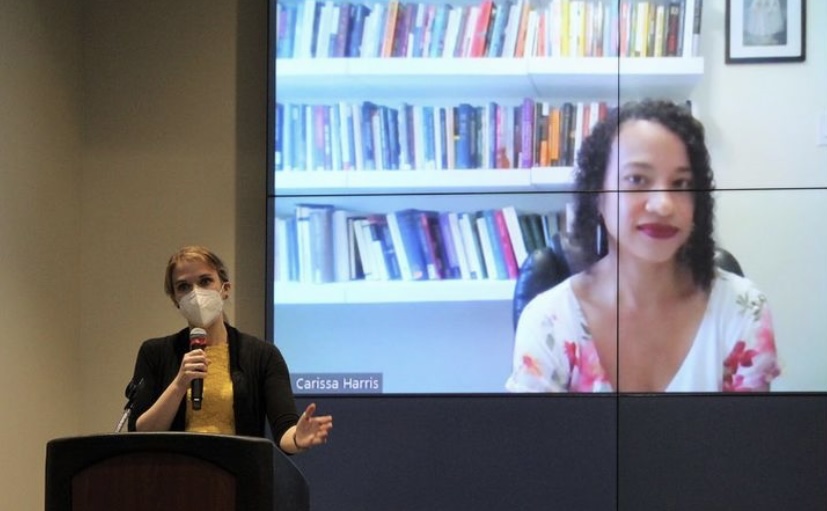On Oct. 21, LURe Journal in partnership with UWG’s Department of English, Film, Languages and Performing Arts, hosted their annual English Undergraduate Research Conference and LURe Release. After an online conference in 2020, the college and LURe Journal returned in person this season within the Campus Center Ballrooms to celebrate Literary research through poetry, cultural studies, film and many other topics.
The conference featured 10 panels divided into three blocks spaced throughout the day, a provided lunch and a presentation from plenary speaker Dr. Carissa Harris, an Associate Professor from Temple University specialized in medieval, gender and women studies among other subjects.
LURe stands for Literary Undergraduate Research in English and the journal aims to publish scholarly research in literature, critical theory, film and cultural studies. The journal accepts essays from students all across the states as well as international submissions, selecting unique and powerful papers for every issue. Since 2010, LURe has released an official volume of fine-tuned undergrad essays every year, making this latest publication the 11th volume.
This year’s edition holds a variety of topics including an essay discussing Dreamworks’ “Shrek” and another essay centered on the popular game “Among Us”, both written by UWG undergraduates Grace Beagles and Tegan Pederson respectively. LURe Journal and English research in general offers a window into the impact and merit of literary analysis from any medium to better understand and reflect on culture as a whole.
For one panel in particular, three undergrad students shared their essays on “Harry Potter” which touched on family, patriarchy and friendship. Other panels discussed poetry, colonialism, propaganda and the value of multimodality among other topics.
“With the future of Literature studies, it’s really, really important not to discount popular literature like Harry Potter, reality tv, or memes or whatever. Those are all really important and worthy of our thought analysis because of the reach that they have,” said Dr. Carissa Harris.
In her plenary presentation, Harris discussed the virality of memes, which have become the tavern songs or sea shanties of today’s modern culture. Memes and certain stories through fanfiction and spinoffs thrive off of “circulation” similar to how medieval bar songs and fairy tales spread throughout cultures in the past, they all snowball through “collective authorship.”
You may also like
-
UWG’s Ingram Library Hosts Pop-Up Study Spot to Help Students Prepare for Finals Week
-
UWG Offers Mental Health Support And Academic Services To Maintain Student Success During Finals Week
-
UWG Alumnus Shares His Experience Exploring the Underground Flood Channels of Las Vegas
-
Georgia Students Simulate the Struggles of Dementia
-
UWG PR Students Score a Georgia Power Tour at Atlanta Corporate Office
